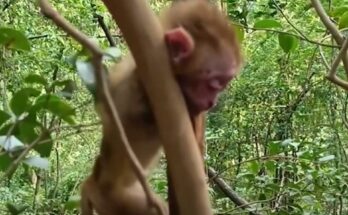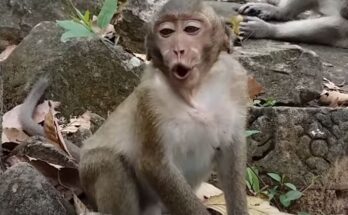In the wild, social interactions among primates can sometimes take surprising turns, and one particularly intriguing behavior is the kidnapping of baby animals by female monkeys. This phenomenon, observed in multiple primate species, raises important questions about the motivations behind such actions. Why would a monkey steal another animal’s baby?
One leading theory suggests that female monkeys engage in kidnapping to practice maternal skills. In many primate societies, young or inexperienced females may “borrow” infants from other mothers within their troop, a behavior that helps them learn how to care for young before having their own offspring. However, in some cases, this behavior extends beyond their own species, with monkeys abducting baby animals such as kittens, puppies, or even young primates of different species.
Another possible explanation is social status. In some monkey societies, infant handling can increase a female’s standing within the group. Holding or interacting with a baby, even if it isn’t hers, may grant her more attention and strengthen social bonds. Some dominant females even use this as a display of power over lower-ranking mothers.
There’s also the possibility that these kidnappings are driven by confusion or mistaken identity. Monkeys, especially in human-influenced environments, may see small, helpless animals as similar to their own young and instinctively attempt to care for them. However, this can be dangerous for the abducted animal, as monkey mothers may not know how to properly care for non-primate babies.
Ultimately, while the exact reasons for this behavior remain unclear, it highlights the complex emotional and social dynamics within primate societies. Studying these cases further may provide deeper insights into the evolution of maternal instincts and interspecies interactions in the animal kingdom.


